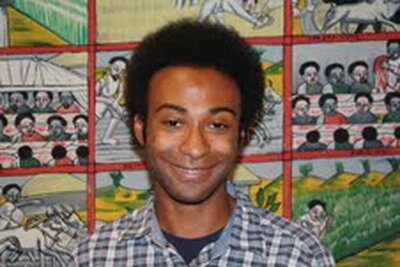

In 2009, the Center for African Studies and the Graduate School of Library and Information Science (GSLIS) announced the creation of a joint MA/MLIS degree, allowing students at the university to benefit from two nationally renowned programs. The hope was that African Studies students and GSLIS students could link their interests and professional aspirations while taking advantage of the resources and opportunities available from both campus units. This degree also intended to build upon the existing relationship that African Studies had with university libraries, as the Africana Bibliography course taught by Al Kagan has been a cornerstone of the African Studies curriculum for years. I was one of four students who participated in the joint degree program during this academic year. My time in GSLIS as a joint degree student was interesting, many times frustrating but overall a useful learning experience. While I was initially out of place referencing Fanon, Nyerere and Biko, eventually I was able to understand the culture of the department and learn valuable information from my assignments and colleagues. As a joint degree student, there were many opportunities for me to link my interests in the African Diaspora with librarianship. For instance, Â it was refreshing to meet and dialogue with a group of South African librarians to learn first-hand about librarianship in South Africa. Furthermore, two of the joint degree students had the opportunity to travel to Hungary over winter break to present their papers on aspects of librarianship at the annual BOBCATSSS Conference, a gathering of LIS students from across Europe.
Perhaps the most fulfilling aspect of my time as a joint degree student was our revision of GSLIS’ “Global Perspective in LIS” Course Syllabus. During our first semester in GSLIS, the four joint degree students took a global librarianship class that unfortunately had little content relevant to Africa in its readings or in its frameworks for analysis. We approached the course developers and proposed that we revise the syllabus to include content and readings representing a more critical and representative discussion of global librarianship and its relation with Africa. They agreed and the joint degree students embarked on a process to revise the syllabus in collaboration with a couple of our colleagues in GSLIS and the department’s curriculum committee. Our six-member student committee worked tirelessly to develop a draft syllabus with weekly topics, created numerous learning outcomes and objectives for each week and located literature to support the course. We felt it extremely important to include topics such as ways of knowing and the structures that form around them, the potential and drawbacks of using ICT (information and communication technologies) for development, and the connection between human rights, information and civil society. In our view, these topics speak more to the realities of librarianship and information access in Africa. In revising this syllabus, we learned a great deal about both libraries and librarianship on the African continent and elsewhere and the politics and work involved in syllabi creation. Our student committee and its efforts to integrate important ideologies and perspectives in African Studies into the GSLIS curriculum also illustrates the type of relationships and collaborations intended by the creation of the joint degree. As graduation approaches, I am happy to have been a part of the joint degree program and look forward to using what I have learned in both spaces in my future endeavors.